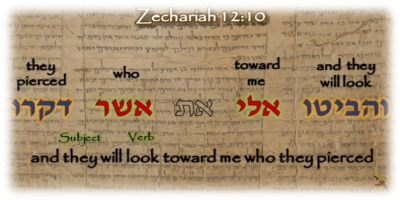What is the Sabbath
But the seventh day is the sabbath of the LORD thy God: in it thou shalt not do any work, thou, nor thy son, nor thy daughter, thy manservant, nor thy maidservant, nor thy cattle, nor thy stranger that is within thy gates: For in six days the LORD made heaven and earth, the sea, and all that in them is, and rested the seventh day: wherefore the LORD blessed the sabbath day, and hallowed it. (Exodus 20:10-11, KJV)
According to this commandment, and this translation, the Sabbath is;
- On the seventh day.
- You and your house will do no work.
- A commemoration of God’s rest on the seventh day after the completion of creation.
To summarize, just as God rested from his work on the seventh day, he has commanded us to do the same.
The Saturday Sabbath
Most people know that the “seventh day” of the week is Saturday. In fact, the Spanish word for Saturday is Sabado, the Sabbath. Those who do observe the Sabbath on Saturday, usually do so from Friday sundown to Saturday sundown as, according to the Jewish reckoning of time, each day begins at sundown (not midnight like we do in our western culture). Jews, of course, observe the Sabbath in this manner, as do most Messianics and a few Christian denominations.
The Sunday Sabbath
Most Christians observe the Sabbath on Sunday based on the belief that Jesus changed the Sabbath from Saturday to Sunday, the Lord’s Day. This change is based on the following passages from the New Testament.
And upon the first day of the week, when the disciples came together to break bread… (Acts 20:7, KJV)
Upon the first day of the week let every one of you lay by him in store, as God hath prospered him… (1 Corinthians 16:2, KJV)
I was in the Spirit on the Lord's day, and heard behind me a great voice, as of a trumpet. (Revelation 1:10, KJV)
I will leave it up to you to decide if this is enough textual evidence to support the change of the Sabbath from the seventh day, as God had commanded, to Sunday, the first day of the week. But let me provide some historical insights into why the Sabbath was changed from Saturday to Sunday.
Question: Why do we observe Sunday Instead of Saturday? Answer: "We observe Sunday instead of Saturday because the Catholic Church, in the Council of Laodicea (AD 336) transferred the solemnity from Saturday to Sunday." (Peter Geiermann, The Converts' Catechism of Catholic Doctrine, 2nd Ed. 1910 p. 50)
Question: Have you any other way of proving that the church has power to institute festivals or precepts? Answer: "Had she not such power, she could not have done that in which all modern religionists agree with her; -she could not have substituted the observance of Sunday the first day of the week, for the observance of Saturday the seventh day, a change for which there is no scriptural authority." (Stephen Keenan, A Doctrinal Catechism p. 174)
"From this we may understand how great is the authority of the church in interpreting or explaining to us the commandments of God -an authority which is acknowledged by the universal practice of the whole Christian world, even of those sects who profess to take the Holy Scriptures as their sole rule of faith since they observe as the day of rest not the seventh day of the week commanded by the Bible, but the first day, which we know is to be kept holy only from the tradition and teaching of the Catholic Church." (Henry Gibson, Catechism made easy (no. 2) 9th ed. Vol 1 pp 341 342)
The Lunar Sabbath
Over the past twenty years, there has been an increase in numbers of those who believe that the Sabbath was not on a fixed day of the week, but instead, a fixed day of the month, specifically, the Sabbath is every seven days, beginning with the first day of the month, then the eigth, then the fifteenth, etc. It is not my intention here to prove or disprove any Sabbath belief, so if you want to learn more about the Lunar Sabbath, you are free to research the topic for yourself.
The Sabbath from an Ancient Hebrew perspective
Many people will begin a Biblical study with, “What does this mean to me.” When I begin a study of any Biblical topic, I will always begin with, “What does this mean from the perspective of the people in the time and place that it was written.” With that in mind, let’s take a look at the Sabbath from a Biblical Hebrew’s perspective.
Let’s begin with the word שבת (Shabbat, Strong’s #7676), which comes from the root שבת (Sh.B.T, Strong’s #7673). This root literally means “to cease” (see Genesis 8:22). Therefore, the noun shabbat, means “a ceasing” or more specifically, “a day of ceasing.” It is a day where you cease from, according to the commandment, work, which we now need to define. There are quite a number of Hebrew words translated as “work,” but each of them has a defined kind of work. The Hebrew word for “work” in the commandment is מלאכה (m’la’khah, Strong’s #4399) and more refers to a “business” type of work (see Genesis 39:11).
It is at this point where we need recognize a difference between our culture and that of the Ancient Hebrews. We live in a culture where activity is going on 24 hours a day, but in ancient cultures, activities, such as “business,” ceased when the sun went down, when the day ended. Technically, from the perspective of the Hebrew language, every night is a shabbat, a time of ceasing. Therefore, from their perspective, the Shabbath day only applied to the day, not the night.
According to the commandment, they were allowed to do business the first day of the week (Sunday) to the sixth day of the week (Friday), but on the seventh day (Saturday), they were not to do any business. It is as simple as that.
Another look at the Lunar Sabbath
Let me begin this with a caveat. While there is Biblical evidence to support the theory of the Lunar Sabbath, I am not convinced that it is historical. But with that said, the earliest known existence of a seven-day week period is in the sixth century B.C., a millennia or more from the time of the giving of the commandment. While it is easy, and natural, for us to conceive of a seven day week, it would be very difficult to track for a group of nomads as there is no astronomical way of keeping track of such a system. However, seven day cycles can be tracked by the moon. The new moon (which I believe is the first visible crescent of the moon) is the first day of the month; the first quarter of the moon comes seven days later, the full-moon in another seven days (the fifteenth day of the month), the second quarter of the moon in another seven days, then the cycle begins again with the next new moon.
Also in the fifteenth day of the first month, when ye have gathered in the fruit of the land, ye shall keep a feast unto the LORD seven days: on the first day shall be a sabbath, and on the eighth day shall be a sabbath. (Leviticus 23:39, KJV)
It is interesting to note that when you are using the weekly Sabbath, the first and eighth day of this feast can fall on any day of the week, which is why in Judaism, there can be more than one Sabbath in a week. However, if you look at this verse from the perspective of the Lunar Sabbath, the first and last day of this festival are on the eighth and fifteenth days of the month, the same days that are Sabbaths according to the Lunar Sabbath.
Community
With all the different groups and individuals observing the Sabbath at different times, it is, in my opinion, violating the principle of the Torah , the teachings of God, which I believe is to create “order within the community.” Observing the Sabbath at different times is chaos and brings disunity to the community.
This same ideology applies to the feasts. Let’s look at Passover as an example. With different groups and people following different calendars, the Passover is being celebrated on a wide variety of days—chaos. Judaism follows a yearly calendar based on the moon and because of this; Passover always begins as the sun sets on the western horizon on the fifteenth day of the first month. At this very same time, the full moon is beginning to rise on the eastern horizon. Think about this for a moment, the Passover is beginning in households every second around the word for a full 24-hour period as the light of the sun and full moon shine at opposite horizons—order.
Conclusion
Now that we understand the Sabbath from a Biblical perspective and from the perspective of the Hebrews of the Bible, we can now determine how we are going to apply this to our modern culture, but I believe in ensuring that that application brings order within the community and not chaos.

Like what you’re discovering? Continue the journey from Bible reader to translator.
|







